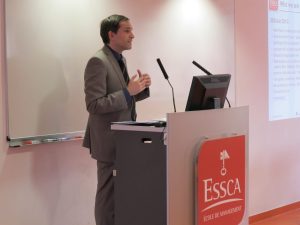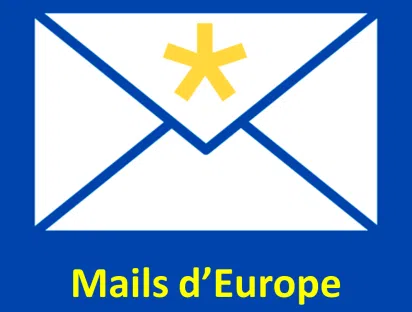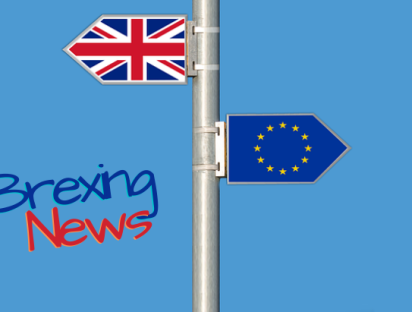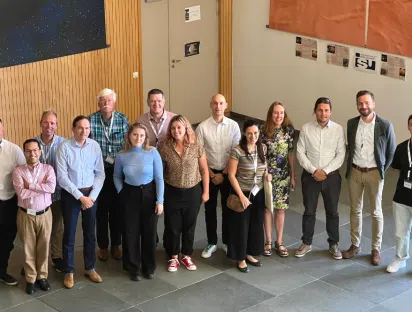As space policy is more and more catching the attention of mainstream and academic media, Thomas Hoerber gave an interview to the World Politics Review.
World Politics Review: What are the European Space Agency’s space capabilities, which member states are the biggest participants, who are its major international partners, in terms of space diplomacy and commercial ties?
Thomas Hoerber: ESA is a technical agency with the best space engineering expertise Europe has to offer. This ethos is important for the implementation of major space endeavors, such as Galileo satellite navigation system, Copernicus earth observation program or most recently the Rosetta mission to land on a comet. This expertise is also the reason why major European space actors such as France, Germany, Italy, Belgium and Britain see the ESA as the best European platform for their space programs. For example, France could not have afforded to develop the Ariane launch vehicle alone. This expertise is also the reason why the ESA is the interlocutor for NASA or the Russian space agency with which a very close collaboration exists through the Soyuz launcher used by ESA.
The foundling director of the ESA, Roy Gibson, said at the 40th anniversary of the ESA Convention in 2014: “We were helping to construct Europe.” The ESA has built up European space companies, such as Arianespace. Companies, such as Thales or OHB have national roots, often in the military sector, but have become European multinational companies. What is interesting is the Europeanisation process of these companies in serving the ESA and the political aspiration which undoubtedly exists within the ESA.
WPR: What have the major priorities of the ESA been historically, and how are those changing?
Thomas Hoerber: Currently, only the space engineering expertise of the ESA is uncontested. This was why the ESA was created and that is still its purpose today. Under the previous ESA Director General, Jean-Jacques Dordain, the ESA was conceived as the implementing agency of the European Union’s space policy, despite the unease about the political consequences of growing space capabilities. The ESA was created in 1975 deliberately not as a political organization. At that time, the supranational European integration process was not held in high esteem, and therefore ESA was created as an intergovernmental institution in which the member states could stop any activity, except some core activities. This has also historically limited the ESA.
The discussion about the relationship between the ESA and the EU, the latter being a political organization with democratic legitimacy, highlights the pressing question of whether or not growing space capabilities necessitate increased political leadership, sanctioning and accountability. It also shows the current doubts as to if the ESA, under its current charter, can fulfill that political role. That is why the ESA has become interested in a closer cooperation with the EU on space activities and why the EU has engaged in space activities, unfortunately rather clumsily as in the case of Galileo where it showed that the EU does not have the technical expertise to implement such projects.
WPR: How big of a political priority is the ESA and space policy to the EU, and to what extend is there overlap with other EU policies (defense, climate, research, etc.)?
Thomas Hoerber: Space capabilities have become an important enabling tool for many other EU policies. Earth-observation capabilities are essential for EU climate change policies. Galileo will be the independent European geo-positioning system, which is important for motorists, precision farming and shipping.
Satellite intelligence is vital for border control, in the migration crisis, for crisis management and eventually for defense. That is why Galileo has received EU funding under the Trans-European Networks budget line, which finances major European infrastructure projects.
For the moment, it seems that the EU is content with space technologies
serving other policies with more immediate benefits. We are not in an era where the Starship Enterprise could lead humans to aspire to the exploration of space. Current EU policies are much more utilitarian which, is what the Member States ask of the EU. We are also no longer in the Cold War, either, where the space race pushed the superpowers to more and more expenditure on prestige space projects.
In the EU, in contrast to other major powers, there is no Member State that can afford such a large space program by themselves. Therefore, the European option is the only one available for countries such as France or Germany. And even after Brexit, Britain will remain a member of ESA. The question is whether beyond these immediate benefits there is a Star Trek in space policy that could contribute, for example to the fostering of a European identity.
Thomas Hoerber is Professor for European Studies at ESSCA –School of Management. His expertise is post-war European History and European integration, and within that process Space Policy, Sustainable Development, Energy and Environmental Policies as well as Integration Theory. He publishes regularly in these fields.






